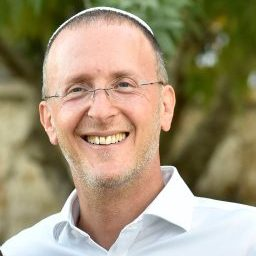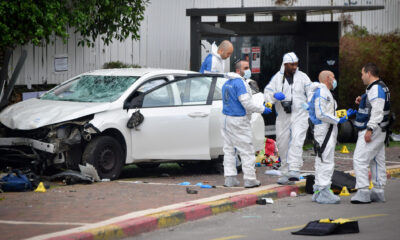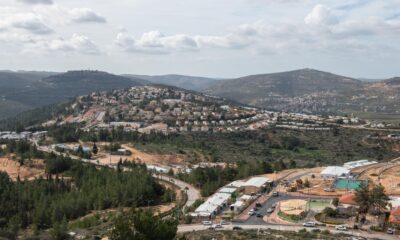
OpEds

Simchat Torah: is it still joyous?
Rabbi Leo Dee, the survivor of a devastating terror attack during Pesach 2023, offers a brave solution to the question of how to celebrate Simchat Torah this year.
It’s a question rabbis in Israel and all over the world are asking themselves. On the one hand, it’s a festival, a day when it’s forbidden to give eulogies and to mourn. On the other, it’s the anniversary of the most tragic attack against humanity since the Holocaust. Can we dance again? Can we celebrate again? How should we respect the victims?
This conundrum was first discussed more than 2 500 years ago, when a national tragedy occurred on Rosh Hashanah: the assassination by Jews of the appointed Jewish leader, Gedaliah. What did the rabbis do? They created a fast day after Rosh Hashanah, delaying the commemoration until after the festival was complete. Sadly, in our past, Jews have encountered suffering and bereavement many times on festival days, and so the rabbis have established a number of creative solutions. But the overriding principle has always been: a simcha is a simcha is a simcha.
My wife, Lucy, and daughters Maia and Rina were murdered on the first day of chol hamoed Pesach. Technically, their yahrzeit falls each year during the festival. However, I was told that the correct practice is to bring it forward each year by two and half weeks, and to commemorate our loss at the end of Adar. On the first yahrzeit, my kids and I found this to be an inspired solution because we would be devastated to be mourning while the whole Jewish people was celebrating Pesach.
When the seventh day of Pesach fell a few days after we had buried Lucy, Maia, and Rina, and the shiva was postponed until after the festival, I found myself in shul. The chazan started to recite the festive Hallel prayer, which is usually sung with joyful tunes. Since the whole community had just attended two funerals for my family, the mood was subdued, and the chazan began to recite the Hallel quietly without song. I rose and whispered in his ear, “Please sing!” Because a simcha is a simcha is a simcha.
So, for rabbis in the diaspora who are wondering how to celebrate this Shemini Atzeret and Simchat Torah, I’d like to suggest something. On 7 October, our enemies had a simple objective: “From the river to the sea!” Their goal was to massacre us, and scare us out of our homeland. In short, genocide.
There’s an important principle of common sense. If a wise person who wants the best for you suggests you do something, you should probably heed her advice. Conversely, if a psychotic person who wishes for your demise suggests you do something, you should probably do the opposite!
This is a case of the latter. If our genocidal enemies want us to leave the land of Israel, then we must do the converse. That’s why I would like to suggest that rabbis all over the world urge their communities this year to start an aliya committee. An aliya committee consists of a group of three or more families, who are considering aliya in the future, who get together once a month and invite speakers to inform the whole community about school options, work possibilities, housing, options for seniors, and university courses in Israel. I know that Mizrachi, Nefesh b’Nefesh, and their partners would be delighted to provide relevant speakers throughout the year, probably for very little cost. This is a very simple project to implement.
Jews have humorously summed up our holidays: “They tried to kill us, they failed, let’s eat!” We have always used our dark sense of humour to help us get through dark times. How about this year we update the definition of a Jewish holiday to, “They tried to exile us, we won, let’s learn about aliya!”
Let’s make this Simchat Torah a day of true joy, a day of supporting Israel in the most tangible way possible, by promoting immigration to the most incredible country with the most impressive people and the brightest future. Chag sameach!
- Rabbi Leo Dee is an educator living in Efrat. His book Transforming the World: The Jewish Impact on Modernity was republished in English and Hebrew in memory of his wife, Lucy, and daughters Maia and Rina, who were murdered by terrorists in April 2023.










